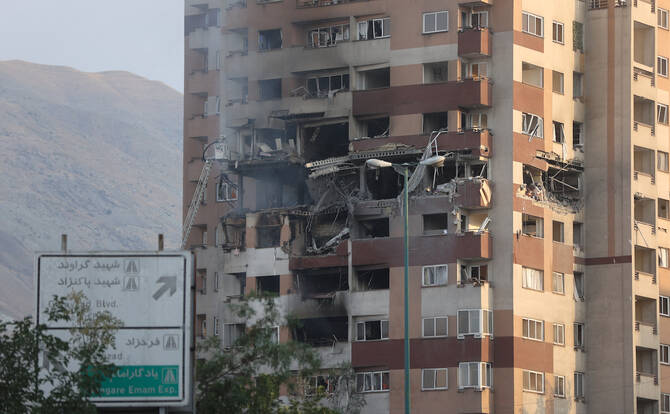
- ARAB NEWS
- 31 Jul 2025

As regional tensions rise following Israeli military strikes on Iran, Saudi Arabia remains committed to its longstanding principles: de-escalation, diplomatic solutions, and international cooperation. The Kingdom has firmly condemned Israel’s actions, calling them violations of international law, and warning that continued escalation will only complicate efforts to achieve long-term stability.
Saudi Arabia’s foreign policy has consistently prioritized peaceful resolutions, advocating for diplomacy over military confrontation. Riyadh urges all involved parties to exercise restraint and seek constructive dialogue instead of further aggression. The Kingdom has also called on the international community, especially the UN Security Council, to take decisive steps in preventing further destabilization.
In response to the crisis, Saudi leadership has actively engaged with regional and global allies to discuss possible solutions and ensure coordinated efforts toward de-escalation. Riyadh remains committed to fostering discussions that prevent further violence and promote lasting peace.
Saudi Arabia has made its position on sovereignty clear. It will not allow its airspace to be used for any military operations, regardless of their origin or target. This policy underscores the Kingdom’s dedication to safeguarding its national security, while maintaining its stance against direct involvement in military conflicts.
Saudi Arabia envisions a broader transformation for the Middle East — one that prioritizes regional integration over conflict.
Faisal J. Abbas | Editor-in-Chief
Beyond the immediate crisis, Saudi Arabia envisions a broader transformation for the Middle East — one that prioritizes security, economic cooperation, and regional integration over conflict. The Kingdom’s leadership aims to shift focus away from confrontation toward prosperity, ensuring that nations collaborate to improve living standards and build a more stable future.
As tensions continue, Saudi Arabia remains a stabilizing force, advocating for diplomacy, urging international cooperation, and reinforcing its commitment to regional peace. The Kingdom stands ready to work with its global partners to reduce tensions and guide the region toward lasting security and prosperity.
As such, global partners are strongly advised to work closely with Riyadh to avert the consequences of a wide-ranging and uncontainable war that will inevitably threaten populations on both sides, damage civilian infrastructure, and increase the cost of commodities, including oil, which veteran Independent Arabia business analyst Ghaleb Darwish predicts could rise above $100.
This approach highlights Saudi Arabia’s role as a responsible leader, ensuring that Middle East conflicts are addressed through peaceful means and that stability remains the priority. Riyadh’s continued emphasis on diplomacy and cooperation serves as a crucial foundation for shaping the future of the region.